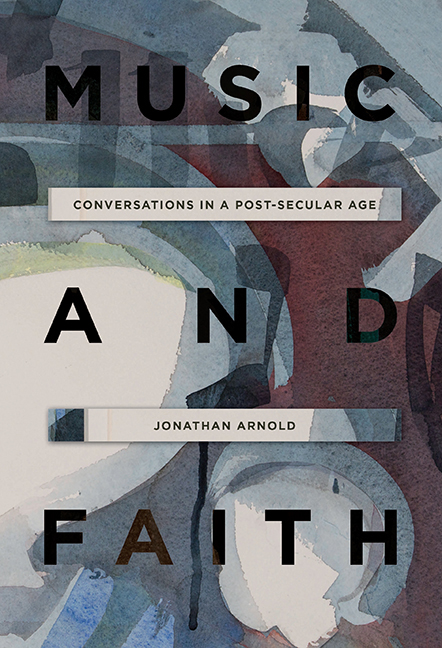Book contents
- Frontmatter
- Dedication
- Contents
- List of Illustrations
- List of Interviewees
- Preface
- Acknowledgements
- Introduction: Faith, Belief and Post-Secularism
- I MEDIEVALISM TO POST-SECULARISM
- 1 Music, Morality and Meaning: Our Medieval Heritage
- 2 Psalms and Hymns and Spiritual Songs
- 3 Eye Music
- Interlude I. ‘O Sisters Too’: Reviving the Medieval in Post-Secular Britain
- II THE HUMAN MIND AND SOCIETY
- III BELIEF AND UNBELIEF
- Conclusion
- Notes
- Bibliography
- Index
2 - Psalms and Hymns and Spiritual Songs
from I - MEDIEVALISM TO POST-SECULARISM
Published online by Cambridge University Press: 01 September 2019
- Frontmatter
- Dedication
- Contents
- List of Illustrations
- List of Interviewees
- Preface
- Acknowledgements
- Introduction: Faith, Belief and Post-Secularism
- I MEDIEVALISM TO POST-SECULARISM
- 1 Music, Morality and Meaning: Our Medieval Heritage
- 2 Psalms and Hymns and Spiritual Songs
- 3 Eye Music
- Interlude I. ‘O Sisters Too’: Reviving the Medieval in Post-Secular Britain
- II THE HUMAN MIND AND SOCIETY
- III BELIEF AND UNBELIEF
- Conclusion
- Notes
- Bibliography
- Index
Summary
Sing psalms and hymns and spiritual songs among yourselves, singing and making melody to the Lord in your hearts.
One of the most obvious connections between music and faith is literature – the writings of those whose words are set to music in hymns, songs, plays, operas, oratorios, anthems and canticles. Words about music can be obtuse and meaningless in their analysis, compared with words within music, where poetry or prose is transformed into musical sound and the colour of each word is enhanced by musical painting. Think of a Schubert song, where even ordinary poetry can be transported into profound significance by the skilful use of melody and harmonic scoring, economically composed for a pianist and singer to interpret.
Writers have long made a close connection between the created order and divinity, from the garden of Eden in the book of Genesis, to the Hellenic world of Pythagoras, Plato and Plotinus, to Christ's incarnation itself. Many a poet has perceived God in nature and none more so than Thomas Traherne (1636/7–74), the seventeenth-century English Metaphysical poet, priest and theologian, in his beloved Herefordshire. For him the beauty of God was directly connected to the beauty of nature:
My Love's the mountain range,
The valleys each with solitary grove,
The islands far and strange,
The streams with sounds that change,
The whistling of the lovesick winds that rove.
For Traherne, nature was Christ to him and he wanted nothing more than to be in the natural world and therefore dwell within Christ himself. The creativity that this ‘natural’ faith inspired spilled over into his poetry, which in turn has inspired composers such as Gerald Finzi to craft musical settings and responses to Traherne's words of faith. Both music and poetry have now inspired a third art form in Thomas Denny's visual tributes to both Traherne and Finzi in his Hereford and Gloucester cathedrals stained glass. Of the windows in Hereford Cathedral's Audley Chapel [Figure 1], Christopher Gibbs writes:
In his glorious windows … Natural wonders abound. He evokes the Herefordshire landscape, the wooded hill that hangs above the church at Credenhill and its distant prospects. We glimpse the city of Hereford, made celestial.
- Type
- Chapter
- Information
- Music and FaithConversations in a Post-Secular Age, pp. 50 - 63Publisher: Boydell & BrewerPrint publication year: 2019



